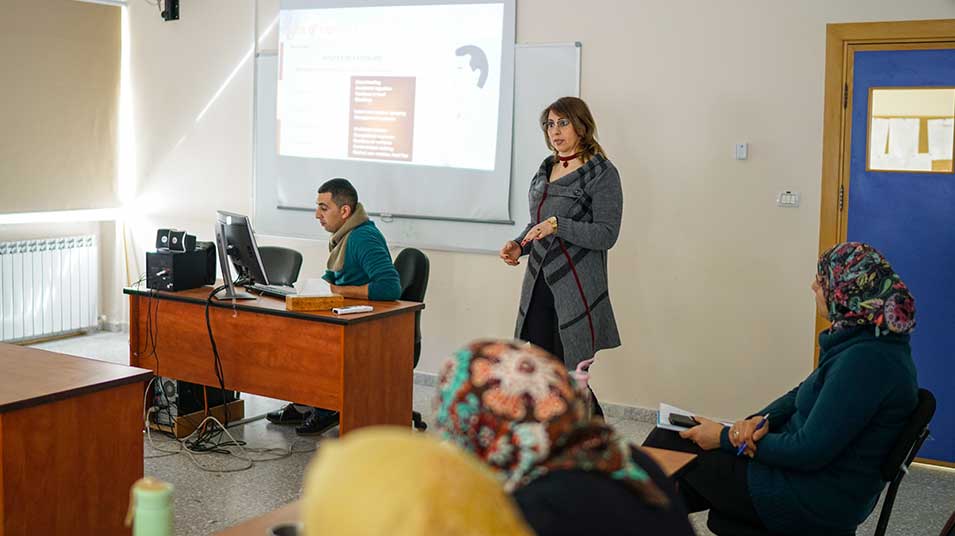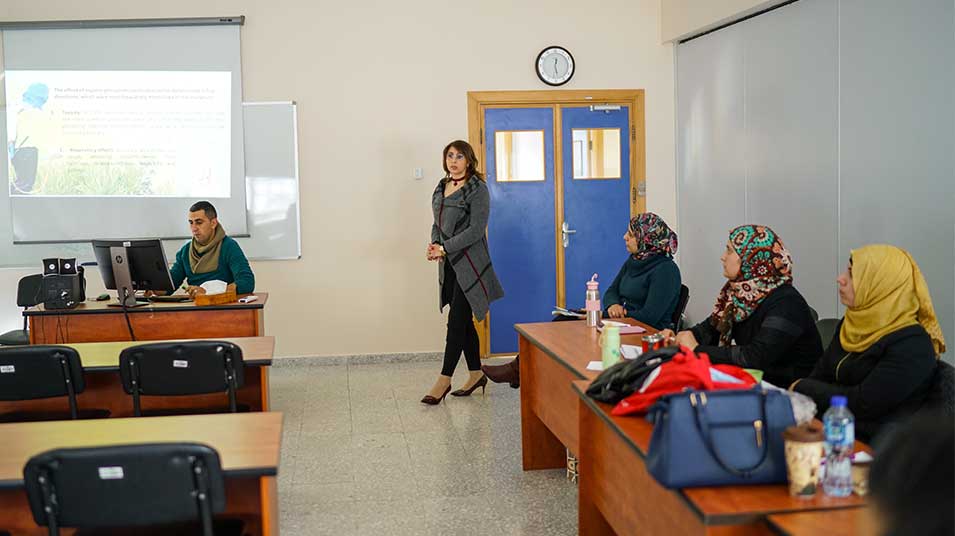Symposium uncovers prevalence and negative effects of endocrine disruptors
The Institute of Community and Public Health at Birzeit University organized a symposium to discuss the results of studies that examine the effects of hormone-disruptive chemicals.
The symposium, held on January 13, 2018, featured research carried out by students of the Environmental Health course, part of the Community and Public Health Master’s Program offered by the institute.
Facilitated by Assistant Professor in the Department of Geography Dr. Omar Tesdell, the symposium comprised five presentations on research papers that examined the effects of endocrine disruptors – chemicals that, at certain quantities, affect the endocrine (hormone) systems in human bodies.
Dr. Tesdell highlighted the symposium as part of the institute’s continued efforts to raise awareness on public health issues. He said, “Our aim at the institute is to raise awareness on topics that may not be visible or easily discernible to the public. Through this symposium, we hope to affect change in people’s perception of these harmful chemicals, and to build enough momentum so that relevant regulations are introduced.”
The first research, carried out by Raed Amro and Ahmad Khatib, examined the effects of perfluorinated compounds (PFCs) on the human body. The researchers reviewed locations where PFCs can be found in the environment in general, and in Palestine specifically, and evaluated the pertinent regulations to curb or ban PFCs use.
Said Abu Khatab and Abeer Aranki presented the second research paper of the symposium. In their research, they examined the use of organophosphate-based pesticide, herbicides, and fungicides in Palestine. The researchers noted that these materials were banned in the European Union because of their toxicity and harmful effects on the reproductive and respiratory systems.
The third research, conducted by Razan Salah and Abla Ahmad, reviewed dioxins as a token of endocrine disruptors. Dioxins, argued the researchers, have the ability to cause reproductive issues, adversely affect the immune system, and, in some cases, cause cancer. The researchers also discussed where dioxins can be found in Palestine, and recommended that relevant amendments be made to the governing regulations.
The fourth research of the symposium was presented by Khamisa Shqerat and Alia Al-Kurd, in which they studied the prevalence of Bisphenol A (BPA) in Palestine and its effects on the hormonal balance of the human body. Per the researchers, BPA is an ingredient of polycarbonate plastics and epoxy resins, and as such, could be found in many different products – rendering it a major public health concern.
The fifth and final research presentation of the symposium focused on mercury, its effects, and its sources. The main route of human contact with mercury, the researchers found, is through consumption of seafood, as mercury residues collect in seawater and are then ingested by marine creatures such as tuna, sardines, and shellfish. Mercury is also used in some products, such as fluorescent lamps, electrodes, and amalgam teeth filling.








